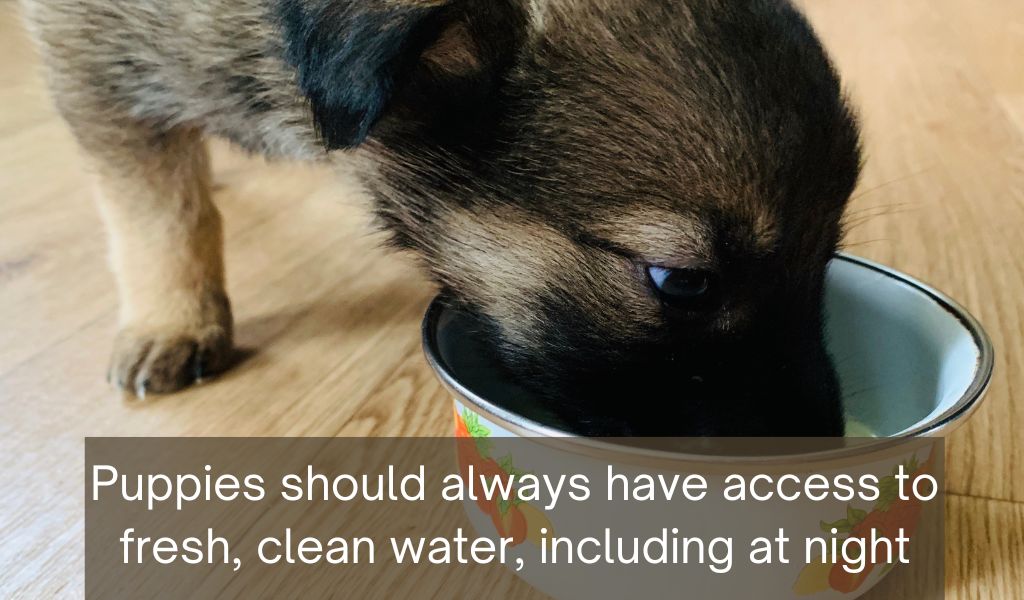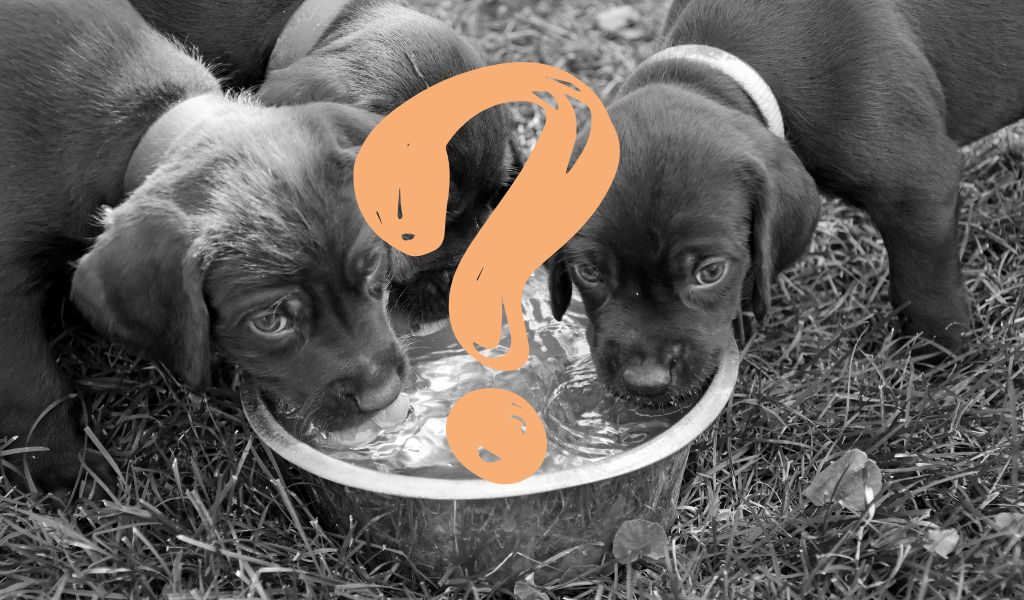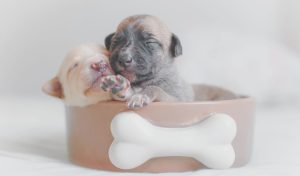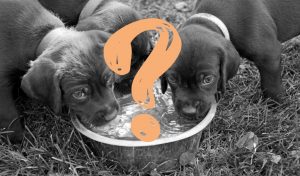For new puppy owners, there are a lot of questions about care and feeding.
One common question is whether or not puppies need water at night and whether or not you should leave water out for them.
Your puppy should always have access to clean and fresh water, and this includes at night. Puppies need to be hydrated at all times and the reality is that your puppy may become thirsty at night. So, you need to make sure that he can drink when he needs to.
How much water does a puppy need?
Puppies need a lot of water to stay hydrated. They are small and have not yet developed the ability to regulate their body temperature as well as an adult dog.
This means they are more susceptible to heatstroke and other conditions.
Water also helps puppies to digest their food properly and keep their bowels moving.
A good rule of thumb is to give your puppy 1 ounce of water per pound of body weight each day.
If your puppy is playing or exercising hard, you may need to increase their water intake.
Signs that your puppy is dehydrated include lethargy, dry mouth, sunken eyes, and a loss of appetite.
If you notice any of these signs, make sure to give your puppy extra water and take them to the vet if the problem persists.

Puppies need to be hydrated 24/7
Puppies need hydration 24/7 which means they need water at night too.
Nighttime hydration is often overlooked by many people but it’s just as important as during the day.
A common myth is that puppies don’t need to drink water at night because they’re sleeping and not active, but that’s not true.
Although they’re not running around, they’re still breathing and their bodies are still growing.
That growth requires lots of energy and water. If your puppy isn’t properly hydrated, they may not have enough energy to grow properly or fight off diseases.
Additionally, dehydration can lead to other health problems such as kidney disease.
So make sure your puppy always has access to fresh, clean water – even at night.
If your puppy isn’t properly hydrated, they could start to experience some serious health problems.
For example, dehydration can cause puppies to become lethargic, nauseous, and dizzy.
In severe cases, it can even lead to organ failure.
Additional tips for keeping your puppy hydrated
In addition to making sure your puppy always has access to fresh water, there are a few other things you can do to help keep him hydrated:
Add some moisture to his food. If your puppy is eating dry kibble, add a little bit of warm water (1-2 tablespoons per cup of kibble) to help rehydrate him.
You can also add some low-sodium chicken or beef broth (again, 1-2 tablespoons per cup of kibble) for flavour and extra hydration.
Just make sure the food isn’t too soupy—your puppy should still be able to eat it easily without making a mess.
Invest in a pet fountain. If your puppy doesn’t seem interested in drinking from his bowl, try getting a pet fountain instead.
Many puppies find running water more enticing than still water, so a fountain may encourage him to drink more.
Just be sure to clean it regularly according to the manufacturer’s instructions—otherwise, it could become a breeding ground for bacteria.
Make homemade ice lollies. For an extra special treat on hot summer days (or any day), freeze some chicken or beef broth in an ice cube tray or silicone mold.
Then let your pup enjoy his very own “puppy lollipop”.
Not only will he stay hydrated, but he’ll love the taste, too.
Final Words
Puppies need access to fresh water at all times—including overnight—to stay properly hydrated.
A good rule of thumb is to fill up your pup’s bowl before you go to bed and first thing in the morning so he has enough H2O while you’re asleep.
Additionally, adding moisture to his food and investing in a pet fountain can also help keep your puppy hydrated throughout the day.










